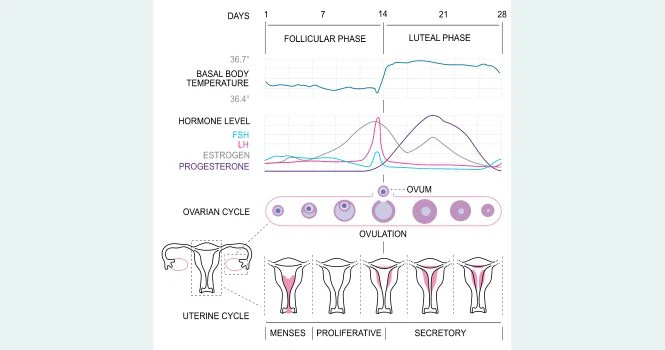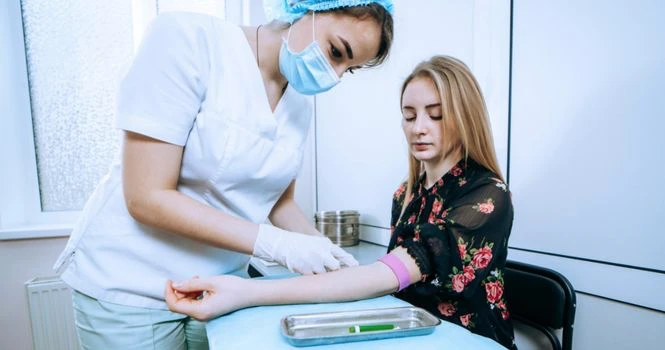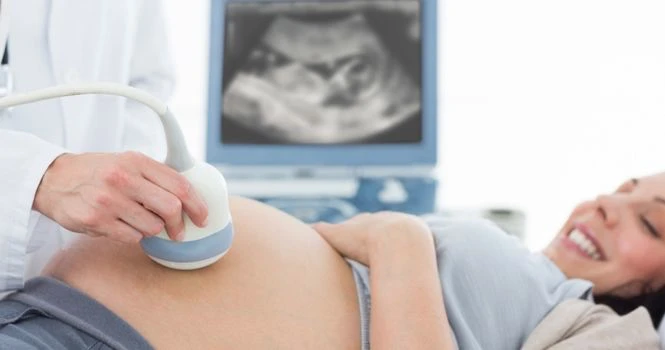Every woman’s menstrual cycle is unique, often characterized by its own set of rhythms and patterns. But, there can be times when you might wish to adjust this natural cycle, perhaps to avoid menstrual discomfort during an important event or for various other reasons or pregnancy scare.
But is it possible to actually induce your period early?
Surprisingly, the answer is Yes.
Through a range of methods, from certain lifestyle modifications to medical interventions, it is possible to encourage your period to arrive earlier than expected.
We will delve into the mechanics of menstruation, explore why periods may sometimes arrive early, and most importantly, guide you through the various medical strategies, as well as natural interventions.
The Underlying Process: What Triggers Menstruation?

Menstruation, often referred to as a period, is a natural biological process that occurs as a part of the female reproductive cycle. This cycle is regulated by a complex interplay of hormones, primarily estrogen and progesterone.
Beginning of the Menstrual Cycle:
The cycle typically begins with the release of the hormone gonadotropin-releasing hormone (GnRH) from the hypothalamus in the brain. This hormone signals the pituitary gland to produce follicle-stimulating hormone (FSH).
Follicle Development:
FSH stimulates the growth of follicles in the ovaries, each of which contains an egg. These follicles, as they mature, start to produce estrogen.
Endometrium Thickening:
The rise in estrogen levels causes the lining of the uterus (the endometrium) to thicken in preparation for a potential pregnancy.
Ovulation:
The surge in estrogen eventually leads to a spike in another hormone called luteinizing hormone (LH). This LH surge triggers the release of the most mature egg from the ovary, a process known as ovulation.
Progesterone Release:
After ovulation, the remnants of the follicle in the ovary transform into a structure called the corpus luteum, which produces progesterone. This hormone helps maintain the thickened endometrium.
Menstruation:
If fertilization of the egg does not occur, the corpus luteum disintegrates, leading to a drop in progesterone levels. This hormonal shift causes the thickened endometrium to shed, resulting in menstrual bleeding.
In short the role of hormones are,
- FSH triggers the maturation of these eggs for potential fertilization.
- Luteinizing Hormone’s (LH) main role is to trigger ovulation, which is the release of the mature egg from the follicle in the ovary
- Estrogen’s main role in the context of menstruation is to thicken the lining of the uterus (endometrium) after menstruation, preparing it for potential implantation of a fertilized egg.
- Progesterone maintains the thickened lining of the uterus, creating a supportive environment for a fertilized egg to implant and develop. If no fertilization occurs, progesterone levels drop, leading to the shedding of the uterine lining, also known as menstruation.
Understanding this process is key to exploring interventions that might make it possible to induce periods early.
Let’s look into the causes of early periods without intervention in the natural process of menses.
Early Menstruation: Unraveling the Causes
Menstrual cycles can sometimes vary in their length and regularity due to a multitude of factors. When a period occurs earlier than expected, it can be caused by both external and internal influences. Here are some common reasons why periods might arrive early:
Stress:
One of the most common causes of an early period is stress. Both emotional and physical stress can affect the hormones that regulate your menstrual cycle, leading to irregularities like an early period.
Changes in Weight:
Significant weight gain or loss can also disrupt the regularity of your menstrual cycle. This happens because body fat has a role in estrogen production, a hormone that’s vital in regulating your cycle.
Exercise:
Similarly, intense physical activity or a sudden increase in exercise intensity can alter the regularity of your menstrual cycle. This is especially common in athletes or those who do high-intensity workouts.
Illness:
Any kind of short-term or chronic illness can throw your menstrual cycle off track. The body can respond to illness by changing hormone levels, which can result in an early period.
Medications:
Certain types of medication, especially those that affect hormonal balance, like birth control pills, can cause periods to come earlier or later than expected.
Puberty or Menopause:
It’s also important to note that during times of significant hormonal change, like puberty or menopause, periods can be quite irregular and may often come early.
Polycystic Ovary Syndrome (PCOS):
PCOS is a hormonal disorder that can lead to irregular periods, including early or late periods. Other symptoms can include excess hair growth, acne, and weight gain.
While these factors can lead to an early period, it’s important to note that occasional irregularities in your menstrual cycle are typically nothing to worry about.
However, if you frequently experience early periods or other menstrual irregularities, it’s always a good idea to consult your doctor to rule out any underlying medical conditions.
Now Lets see how medical intervention, can get periods early;
Medical Methods for Inducing Menstruation Early
There are a number of medical strategies that can be used to induce menstruation early, although they should only be pursued under the guidance of a healthcare professional. The common methods are,
Hormonal Birth Control:
Birth control pills, patches, or rings that contain hormones (estrogen and progestin) can be used to regulate menstrual cycles and even schedule when periods occur. By manipulating the hormone intake from these contraceptives, one can potentially induce an early period.
Progesterone:
A medication that contains the hormone progesterone (e.g., Provera) may be prescribed by a doctor to induce a period, especially in those who have irregular cycles. Once you stop taking progesterone, it usually triggers the onset of a period.
Emergency Contraceptive Pill:
Sometimes known as the “morning after pill,” taking this medication can sometimes lead to an early period. However, it’s important to note that this is not its primary function, and it should not be used regularly for this purpose.
Non-Steroidal Anti-Inflammatory Drugs (NSAIDs):
Some research suggests that non-steroidal anti-inflammatory drugs (NSAIDs), like ibuprofen, might induce menstruation early, although more studies are needed to confirm this.
It’s important to consult your doctor before attempting to manipulate your menstrual cycle. They can provide guidance based on your individual health circumstances and ensure any method you choose is safe.
Embracing Nature: Holistic Approaches for Early Periods
While medical methods can help induce periods early, there are also various natural and holistic methods that some individuals turn to.
It’s important to remember that the effectiveness of these methods can vary greatly between individuals, and they should be used with caution.
Always consult your doctor before trying new health practices. The following are some common natural strategies:
Healthy Lifestyle:
Maintaining a balanced diet and regular exercise can help regulate your menstrual cycle, which might help in managing its timing. Eating nutrient-rich foods and staying hydrated is always beneficial for overall health.
Relaxation Techniques:
Since stress can affect your menstrual cycle, using techniques to manage stress, such as yoga, meditation, and deep breathing exercises, may help maintain a more regular cycle.
Warm Compress or Bath:
Applying a warm compress to your abdomen or taking a warm bath may stimulate blood flow to the pelvic area, which might help induce menstruation.
Certain Herbs and Spices:
Some individuals use herbs and spices, such as parsley, ginger, and turmeric, which are believed to stimulate menstrual bleeding. However, there’s limited scientific evidence to support these claims, and some herbs can have side effects, so it’s crucial to consult a healthcare professional before trying this approach.
Vitamin C:
Some people believe that high doses of Vitamin C can induce menstruation by increasing estrogen levels. However, excessive Vitamin C can cause stomach upset and other side effects, so this method should only be tried under medical supervision.
While these methods may work for some people, they might not be effective for everyone.
Remember, your menstrual cycle is a natural process that reflects your overall health and well-being. Regular disruptions to your cycle can sometimes indicate underlying health issues. So, if you’re frequently needing to manipulate the timing of your period, it’s essential to seek advice from your Gynecologist.
It’s important to understand and respect the complexity of your body’s processes.
While it is possible to induce periods early, it should be done responsibly, safely, and under professional guidance whenever possible.
Always prioritize your health, and make informed decisions about managing your menstrual cycle.













